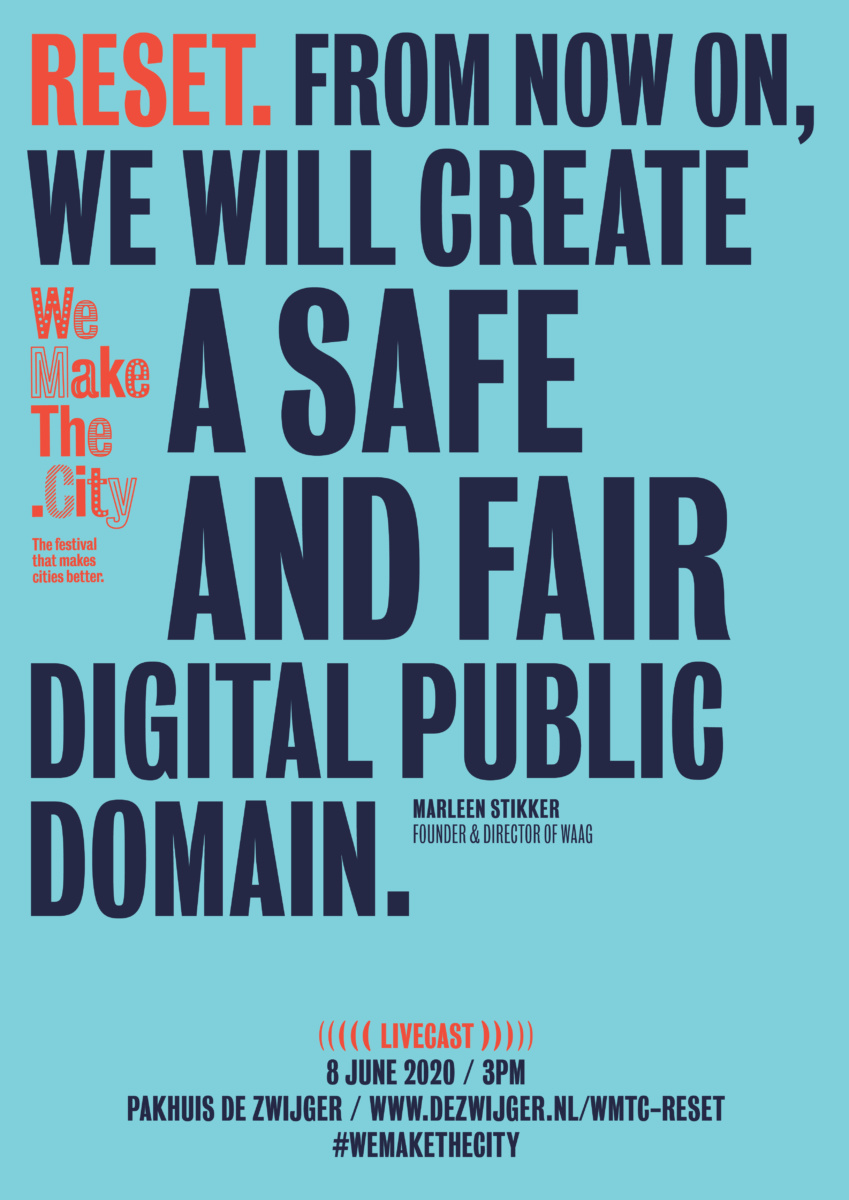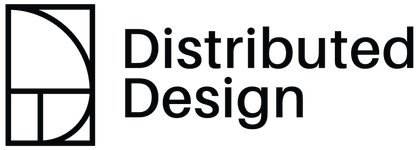The world is turned upside down, the streets are empty. Behind this seeming tranquility, there is a storm raging through our values and structures. This gives us the space to think about a complete ‘reset’. How can we restructure existing dysfunctional systems? In this new series, we will showcase the perspectives of a variety of thought leaders who will reflect on this present-day situation. Through the lens of their own area of expertise and with an emphasis on the Creative Industry. The corona crisis is, without a doubt, a crisis that is leaving behind a trail of victims. But which transformations will we be left within the aftermath? During these times, it is the creatives who can visualise new scenarios and through hypothesising can develop new insights into our future.
In 1993, internetpioneer Marleen Stikker founded of ‘De Digitale Stad’ (The Digital City), the first virtual community introducing free public access to the Internet in Amsterdam. Today, she leads Waag, which she co-founded a year later – a social enterprise that consists of a research institute for creative technologies and social innovation and Waag Products, that launched companies like Fairphone, the first fair smartphone in the world. Marleen strongly adheres to the Maker’s Bill of Rights motto: “If You Can’t Open It, You Don’t Own It”. She believes that society needs open technologies that meet societal challenges. In her book Het internet is stuk (The internet is broken) she asks herself how we, as citizens, can reclaim the internet from tech giants. Marleen recently shared her concerns in front of our House of Representatives on the so-called Corona app as proposed by the Dutch Ministry of Health, mainly about the lack of societal debate about it and the hasty process that should lead to the implementation of the app. Marleen will present the just published Routekaart Digitale Toekomst together with project- and concept developer Sander van der Waal, lead of the Future Internet Lab at Waag.
Toronto-based Bianca Wylie is an open-government advocate with a dual background in technology and public engagement. She is the co-founder of Digital Public and co-founder of Tech Reset Canada, a group that advocates for public good in the innovation economy. She is also a Senior Fellow at the Centre for International Governance Innovation. Bianca is among the most prominent voices of opposition to the vision of Google affiliated company Sidewalk Labs for Toronto. Self-driving vehicles, pavement tiles that can sense traffic and absorb rainwater, and common spaces monitored by ‘smart’ energy systems sound great, but the problem as Bianca sees it is that they’ve been framed as the only option for developing public land. Citizens should direct how to use sensors and software, not the private sector. On May 8 2020, two and a half years after presenting the project, Sidewalk Labs announced that it is no longer pursuing the development of Toronto’s Quayside smart city project.


Waag - The past few months, Waag worked closely together with the Dutch parliament commission on digitalization. On May 28, their findings are presented, and the material Waag produced for this commission are publicly available. >>

Waag - On Wednesday 22 April, Waag's director Marleen Stikker took part in a hearing at Dutch parliament to share her vision on the corona app, proposed by the Ministry of Health. During the hearing, Marleen shared her concerns on the proposed app, the lack of societal debate about it and the hastily process that should lead to the implementation of the app. >>

Medium - Google affiliated company Sidewalk Labs announced today that it is no longer pursuing the development of Toronto’s Quayside smart city project. Their plan was met with applause for innovation, but opposition from some local groups and severe scrutiny from different government levels and officials. >>

Boston Review - Sidewalk Labs would have turned a large plot of Toronto’s public land into a private lab for data collection. Cities need better digital governance to protect against such attempts. >>












